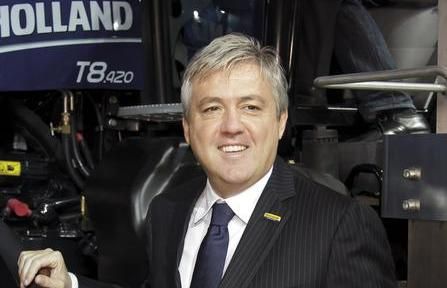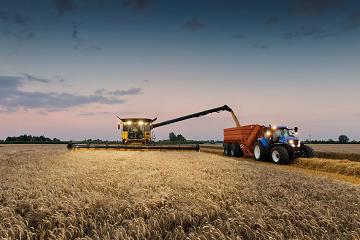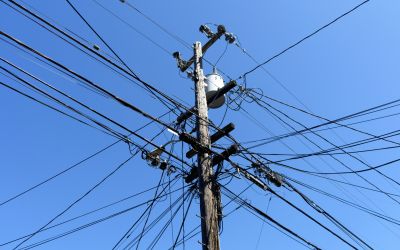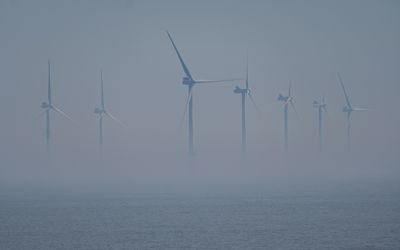Improving efficiency and productivity in the agriculture industry
New Holland Agriculture is improving efficiency and productivity in the agriculture industry and launched the Clean Energy Leader strategy in 2006. Climate Action interviewed Carlo Lambro, Brand President, to find out more.

New Holland is improving efficiency and productivity in the agriculture industry and launched the Clean Energy Leader strategy in 2006 for the active promotion of renewable fuels, emissions reduction and sustainable agricultural technology.
Climate Action interviewed Carlo Lambro, Brand President for New Holland Agriculture, to find out more. Mr Lambro joined New Holland Agriculture in 1987 and he has gained extensive commercial experience in Europe, Central and Eastern Europe, Russia, CIS and China, Mexico, Middle East, Africa and Asia.
Since 2006, New Holland has been established as the Clean Energy Leader. Can you expand on the types of solutions and technologies that the company offers to farmers that are supporting energy efficiency and productivity?
New Holland’s Clean Energy Leader® strategy is rooted in the belief that we can use technology to help farmers run a profitable business while respecting the environment and preserving natural resources.

All these solutions contribute to maximising farmers’ productivity using inputs such as fuel, seeds and chemicals most efficiently, aiming to eliminate waste.
Can you tell is more about the four key pillars that the New Holland Clean Energy Leader® strategy is based on?
The first pillar, Growing Energy, is about turning crops into clean energy and agricultural by-products like sugarcane stover or even old straw bales into renewable energy. Taking this concept forward, we are developing the Energy Independent Farm concept, which allows a farm to achieve self-sufficiency by tapping renewable energy sources such as biomass to generate the energy it needs. The farm uses this energy to run its operation and to power its New Holland Methane Power tractor.
We are developing the Energy Independent Farm concept, which allows a farm to achieve self-sufficiency by tapping renewable energy sources
Efficient Productivity uses our technology to make farming more productive and profitable, reduces waste and costs, and has a lower impact on the environment. Technologies such as our ECOBlue SCR solution and Auto Command™ continuously variable transmission are perfect examples of the way we can improve our farmers’ productivity and profitability, and with our Precision Land Management PLM they can increase yields by up to 40 per cent through a better management of resources.
Sustainable Farming is about enabling farmers to preserve natural resources, for example with tools to help them calculate the impact of their farm on the environment and find ways to reduce it, or by providing a full range of equipment well suited for conservation farming.
And Committed Company is about putting our Clean Energy Leader strategy at the heart of our business, from giving used parts a second lease of life right through to reducing the environmental impact of our production systems. See: www.thecleanenergyleader.com
With deforestation and the REDD+ initiative so high on the climate change agenda, can you expand on ‘no-till farming’ and how New Holland Agriculture promotes and enables it?
No-till farming leaves the soil virtually undisturbed after the growing season, locking in nutrients and moisture. This prevents damage to the soil by preserving its natural structure, benefits the following season’s crop, combats erosion and reduces water evaporation. Effective crop rotation is essential to maintaining the soil’s vitality, as it is not stripped of nutrients.
New Holland provides a full range of products well suited to conservation farming, such as T7 tractors with power-to-weight ratios of up to 25.8 kg/hp that provide excellent traction with reduced soil compaction, or CR combines featuring the Opti-Spread residue management system that ensures an even and wide spread of residue ideal for no-till applications.
The guidance systems in our PLM are very helpful in controlled traffic farming that ensures most of the cropped land is never affected by traffic soil compaction. We also offer a wide range of direct drilling and seeding equipment designed to offer a flexible and efficient drilling.
How important is mechanisation when we talk about energy efficiency and food safety?
Feeding the world’s fast growing population while preserving natural resources and dealing with Climate Change is the challenge we all 
Our aim is to present our vision of the future of agriculture, which hinges on the role of mechanisation in supporting a sustainable agriculture that maximises the efficiency of cultivated land and eliminates waste while preserving natural resources. We will demonstrate our Energy Independent Farm concept, where the farm produces the energy, such as methane, it needs to power its equipment and run its operations.
How is your CarbonID™ Calculator Tool reducing the environmental impact of agriculture whilst improving productivity?
Our calculator tool enables farmers to discover the carbon emissions of their fleet and calculate how much they could reduce their carbon footprint by replacing some of their units with machines featuring our ECOBlue™ low emissions engine technology.
What have you found to be the single biggest threat to global food security and what are the key actions that need to be taken?
Increasing the efficiency and productivity of agriculture together with farming practices that preserve natural resources are key to achieving food security. This means extending mechanisation as widely as possible around the world, making equipment suited to local conditions accessible to the maximum number of farmers and providing them with the
means to increase the productivity of their soil. It means promoting sustainable farming practices that preserve the soil nutrients, minimise waste of water, fertilisers and pesticides, and maximise yields and the quality of the harvest. It means an increasingly widespread and advanced use of precision farming technologies, which can dramatically increase the efficiency of the farm optimising the use of the equipment and resources while minimising the environmental impact.
ECOBraud is one of your programmes to promote agricultural sustainability. Can you tell us more about the programme and why it has been such a success?
ECOBraud is our Sustainable Viticulture programme, which covers our complete range of equipment for the vineyard, including Braud grape harvesters to our specialty tractors. It is based on three pillars. The first is the Intelligent Management System, which controls the grape harvester’s hydraulic flow and engine speed based on the machine’s load and can cut fuel consumption by as much as 31 per cent and reduce its carbon footprint significantly. The second is row tracing technology, which uses guidance correction signals to ensure each row is covered just once, eliminating waste of inputs, increasing harvesting productivity and reducing the vineyard’s environmental impact. The third is managing variable rate inputs with Field IQ™ technology that enables inch perfect fertiliser placement, minimising inputs.
The ECOBraud programme can directly contribute to a 10 per cent reduction in the overall carbon footprint of every bottle of wine produced.
The ECOBraud programme can directly contribute to a 10 per cent reduction in the overall carbon footprint of every bottle of wine produced. The combined savings in fertiliser achieved through Intelligent Management System and variable rate management can result in a reduction of the vineyard’s carbon footprint of up to 40 per cent.
This answers a fast growing demand from consumers for farm produce with a reduced carbon footprint, which explains the success of the programme.





_400_250_s_c1.png)
